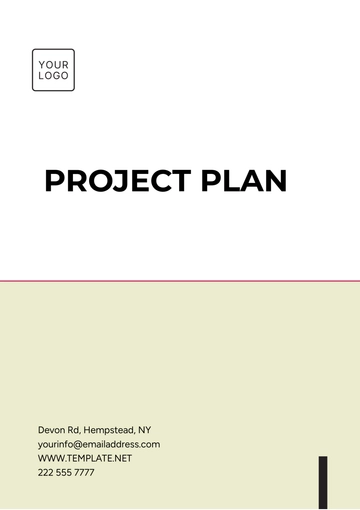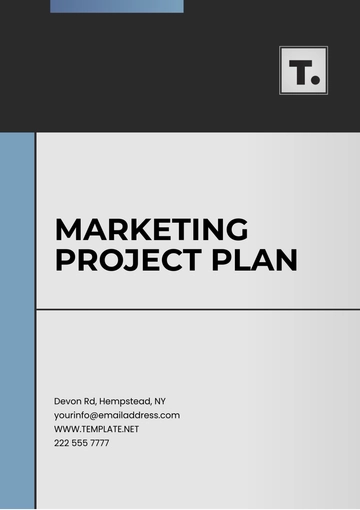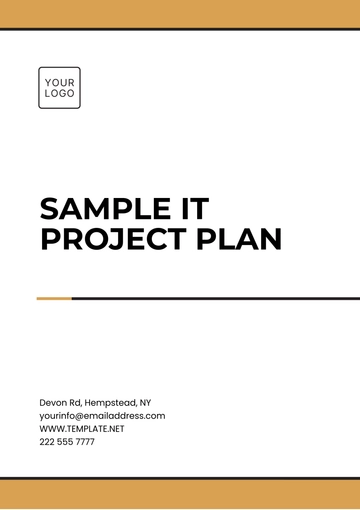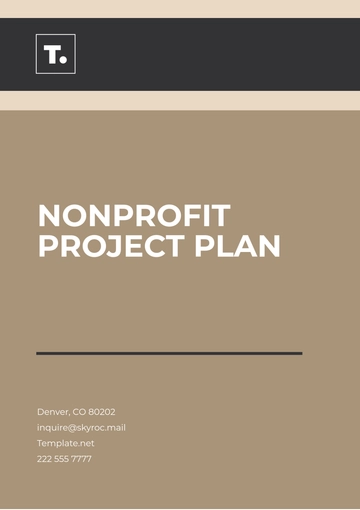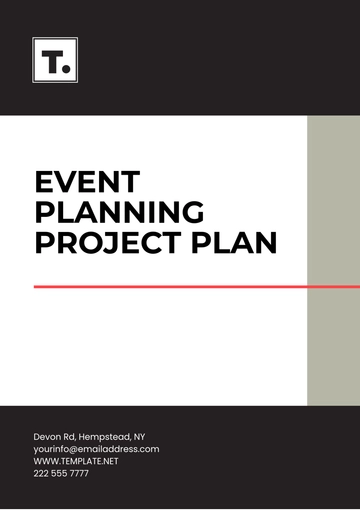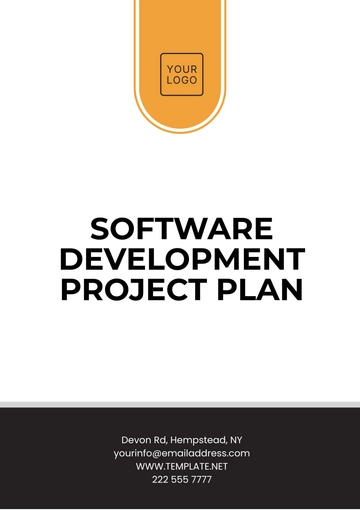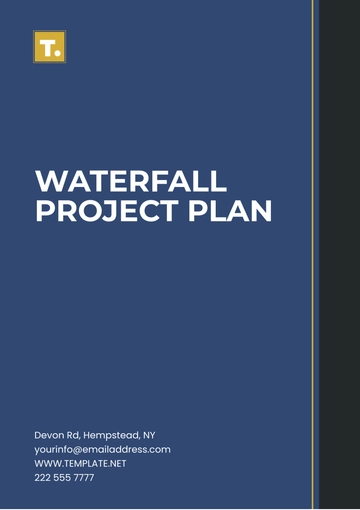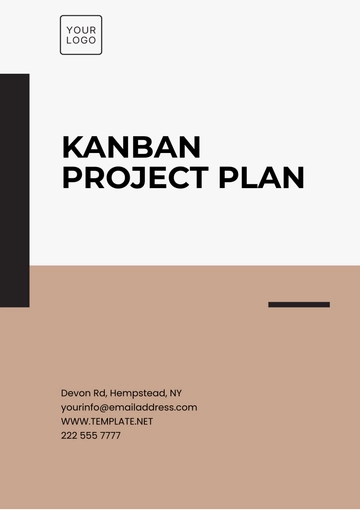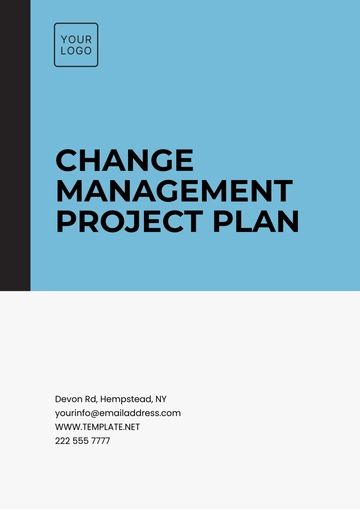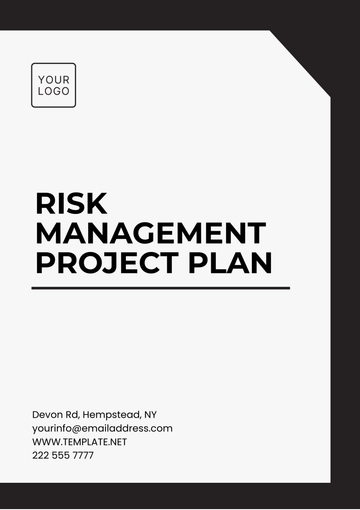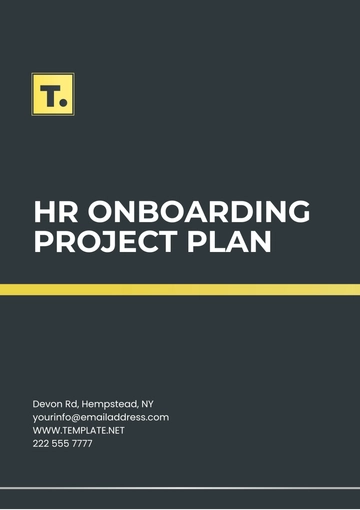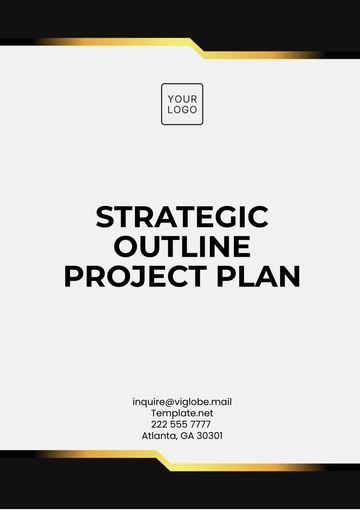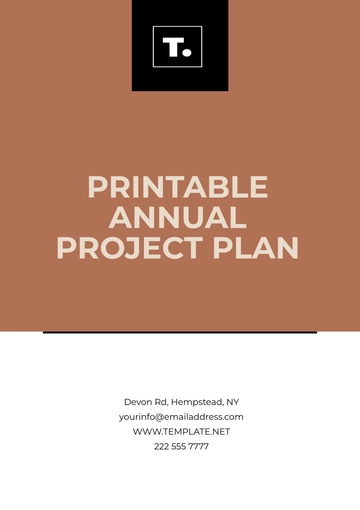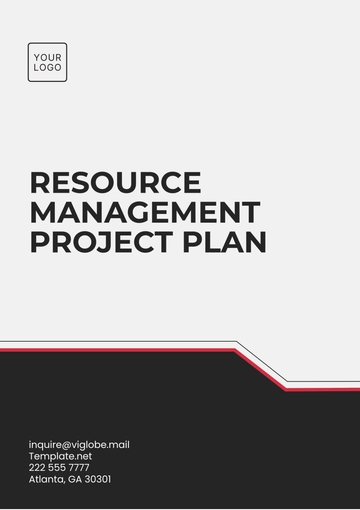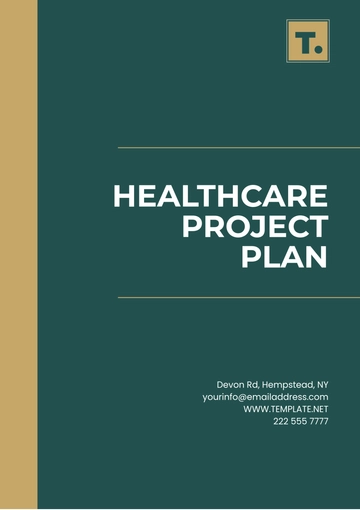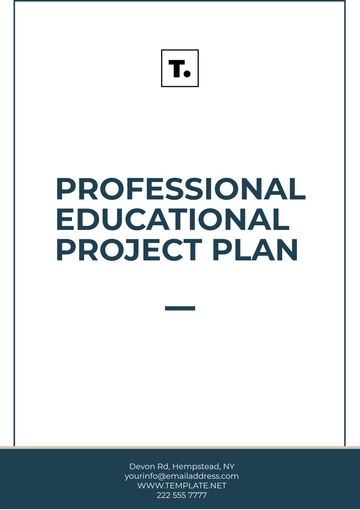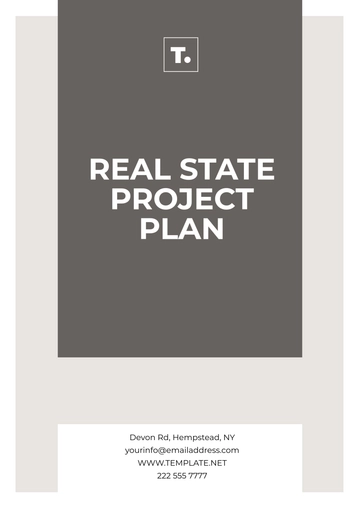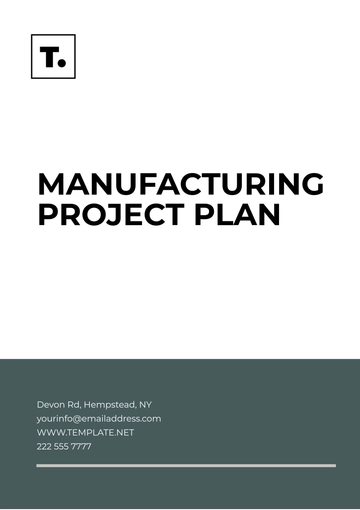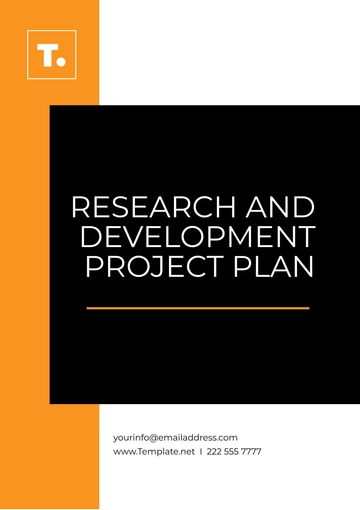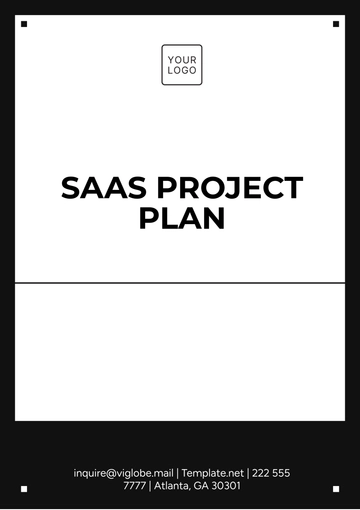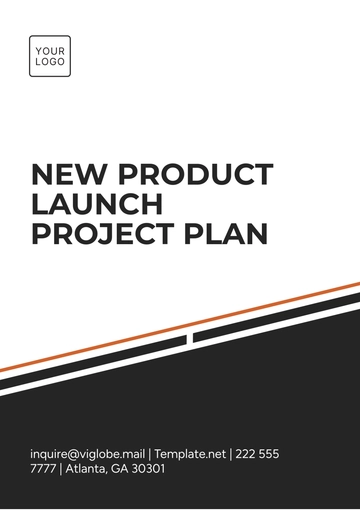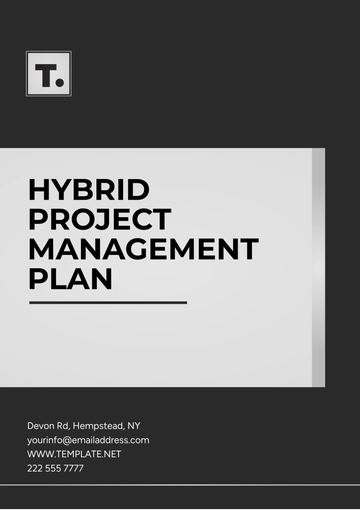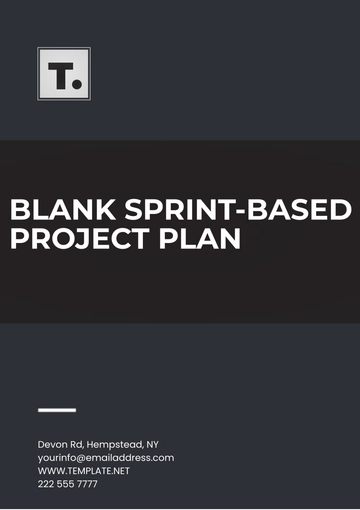Free Startup Culture Enhancement Project Plan
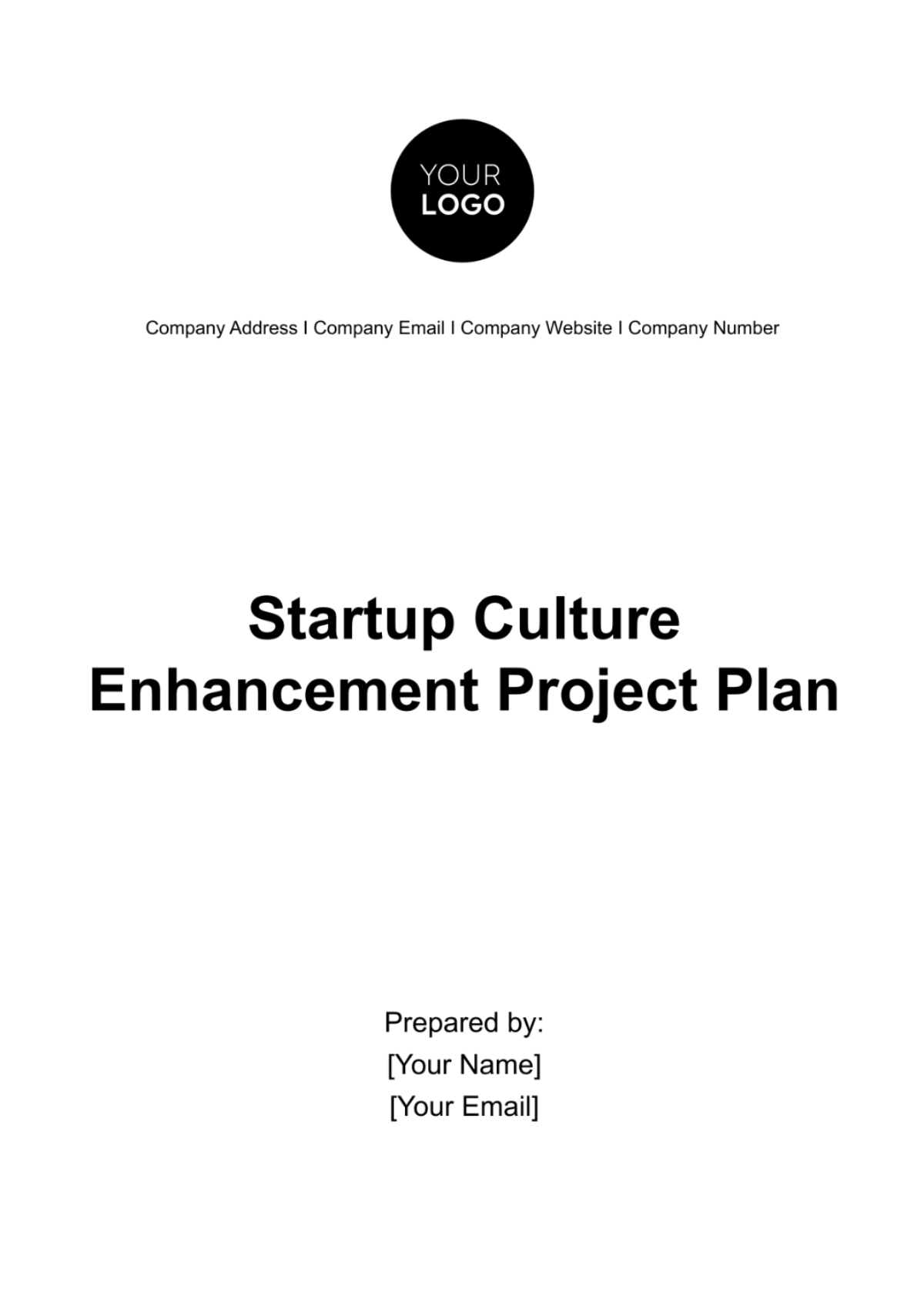
I. Introduction
A. Background
At [Your Company Name], we value the significance of cultivating a thriving organizational culture that not only reflects our core values but also propels us toward our strategic objectives. Our culture is the foundation upon which our company's identity, reputation, and success are built. However, recent internal assessments and feedback mechanisms have shed light on areas within our culture that require enhancement to better align with our aspirations and to meet the evolving needs of our workforce.
Despite our successes, we recognize that there are challenges within our current culture that need to be addressed. These challenges may include issues such as communication breakdowns, lack of collaboration, insufficient recognition of contributions, and barriers to innovation. Addressing these challenges is crucial not only for the well-being and satisfaction of our employees but also for the overall performance and competitiveness of [Your Company Name].
B. Objective
The primary objective of the Startup Culture Enhancement Project is to instill and nurture a culture that empowers every member of our team to thrive, innovate, and contribute their best work. Through intentional efforts to enhance our culture, we aim to achieve the following objectives:
Foster Collaboration: Create an environment where cross-functional collaboration is encouraged and valued, leading to greater synergy and collective achievement.
Promote Innovation: Cultivate a culture of experimentation, creativity, and risk-taking that fosters innovation at every level of the organization.
Enhance Employee Engagement: Increase employee engagement and satisfaction by providing opportunities for growth, recognition, and meaningful contributions.
Strengthen Communication: Improve internal communication channels to ensure transparency, alignment, and effective dissemination of information.
Embrace Diversity and Inclusion: Foster an inclusive environment where diverse perspectives are respected, valued, and leveraged to drive innovation and excellence.
By focusing on these objectives, the Startup Culture Enhancement Project aims to create a culture that not only reflects our core values but also serves as a catalyst for growth, innovation, and success for [Your Company Name].
II. Project Scope
A. Inclusions
The Startup Culture Enhancement Project will encompass targeted initiatives in the following areas:
Communication: Enhancing internal communication channels to facilitate transparency, information sharing, and collaboration among teams.
Leadership Development: Implementing training and development programs to equip managers with the skills and mindset to lead by example and inspire their teams.
Employee Engagement: Introducing initiatives to promote employee involvement, recognition, and a sense of belonging within the organization.
Innovation Promotion: Creating a culture that encourages and rewards creativity, experimentation, and continuous improvement.
Diversity and Inclusion: Enhancing diversity and inclusion initiatives to create a more equitable and inclusive workplace for all employees.
B. Exclusions
The following aspects are considered out of scope for this project:
Structural changes to the organization's hierarchy or reporting lines.
Individual performance management processes.
Major policy revisions unrelated to culture enhancement.
By delineating the scope of the project, we ensure a focused and targeted approach to addressing the identified areas for improvement while maintaining clarity on what falls outside the project's purview. This will enable us to allocate resources effectively and maximize the impact of our culture enhancement efforts at [Your Company Name].
III. Stakeholder Analysis
In conducting the Stakeholder Analysis for the Startup Culture Enhancement Project, it's crucial to identify key individuals and groups who have a vested interest in the project's outcomes and who can influence or be impacted by the changes in organizational culture.
Stakeholder | Role in the Project | Influence/Interest Level |
|---|---|---|
Executive Leadership | Provide strategic direction and allocate resources | High |
Middle Managers | Implement culture enhancement strategies within their teams | High |
Employees | Experience and are affected by the changes in organizational culture | High |
HR Department | Facilitate the implementation of culture enhancement initiatives, provide support in managing change | High |
Project Team Members | Responsible for planning, executing, and monitoring the project | High |
Investors | Interested in the long-term impact of culture enhancement on company performance | Medium |
Customers | Perception of company culture may influence their loyalty and satisfaction | Medium |
External Partners | Collaborate with [Your Company Name] and may be affected by cultural changes | Low |
By identifying and understanding the needs, expectations, and potential contributions of each stakeholder group, [Your Company Name] can effectively engage and communicate with them throughout the project to ensure buy-in and support for culture enhancement initiatives.
IV. Cultural Assessment
A comprehensive cultural assessment will provide valuable insights into the current state of organizational culture at [Your Company Name], identifying strengths to leverage and areas for improvement. The assessment will involve a combination of quantitative and qualitative methods, including surveys, interviews, focus groups, and analysis of existing cultural artifacts and practices.
A. Methodology
The cultural assessment will be conducted in the following stages:
Survey Development: Designing surveys to gather quantitative data on employee perceptions of culture, values, communication, and engagement.
Interviews and Focus Groups: Conducting interviews and focus groups with employees at various levels of the organization to gather qualitative insights into cultural dynamics, challenges, and opportunities.
Data Collection: Administering surveys, conducting interviews, and facilitating focus group discussions to gather data from a representative sample of employees.
Data Analysis: Analyzing survey responses, interview transcripts, and focus group findings to identify themes, patterns, and areas for improvement.
SWOT Analysis: Conducting a SWOT analysis (Strengths, Weaknesses, Opportunities, Threats) to summarize key findings and inform the development of culture enhancement strategies.
B. Key Areas of Assessment
The cultural assessment will focus on the following key areas:
Values Alignment: Assessing the alignment between stated organizational values and actual behaviors and practices.
Communication Effectiveness: Evaluating the clarity, transparency, and effectiveness of communication channels within the organization.
Employee Engagement: Measuring levels of employee engagement, satisfaction, and sense of belonging.
Innovation Culture: Assessing the organization's capacity for innovation, risk-taking, and continuous improvement.
Diversity and Inclusion: Evaluating the inclusivity of organizational policies, practices, and culture.
By conducting a thorough cultural assessment, [Your Company Name] will gain valuable insights into the current state of organizational culture, which will serve as the foundation for developing targeted culture enhancement strategies that address identified areas for improvement.
V. Culture Enhancement Strategies
To address the identified areas for improvement and achieve the objectives of the Startup Culture Enhancement Project, [Your Company Name] will implement a range of targeted strategies focused on fostering collaboration, promoting innovation, enhancing employee engagement, strengthening communication, and embracing diversity and inclusion.
A. Leadership Development
Effective leadership is fundamental to shaping organizational culture. Therefore, [Your Company Name] will prioritize leadership development initiatives to empower managers with the skills and mindset needed to lead by example and inspire their teams. The following strategies will be implemented:
Strategy Description | Timeline | Responsible Parties | Resources Required |
|---|---|---|---|
Conduct leadership training needs assessment to identify skill gaps and development areas among managers. | [Start Date - End Date] | HR Department, Training Department | Survey tools, facilitators |
Develop a comprehensive leadership training curriculum covering topics such as effective communication, conflict resolution, coaching and mentorship, and fostering a culture of trust and accountability. | [Start Date - End Date] | HR Department, Training Department | Training materials, instructional design expertise |
Launch leadership training programs, including workshops, seminars, and coaching sessions, to equip managers with practical skills and strategies for leading diverse and high-performing teams. | [Start Date - End Date] | HR Department, Training Department | Training facilities, budget for external trainers |
B. Employee Engagement
Engaged employees are more likely to contribute their best work and remain committed to organizational goals. To enhance employee engagement at [Your Company Name], the following strategies will be implemented:
Strategy Description | Timeline | Responsible Parties | Resources Required |
|---|---|---|---|
Implement regular feedback mechanisms such as employee surveys, suggestion boxes, and town hall meetings to gather input and insights from employees on their experiences, concerns, and suggestions for improvement. | [Start Date - End Date] | HR Department, Employee Engagement Committee | Survey tools, meeting facilities |
Establish a recognition program to acknowledge and celebrate employee achievements, contributions, and milestones. Recognition initiatives may include awards, shout-outs in company meetings, and personalized notes from managers. | [Start Date - End Date] | HR Department, Employee Engagement Committee | Budget for awards or incentives |
VI. Implementation Plan
A. Timeline
The implementation of culture enhancement strategies will be phased over [Timeline] months to ensure a systematic and structured approach. The following timeline outlines the key phases and milestones:
Phase | Timeline | Milestones |
|---|---|---|
Phase 1: Preparation | [Start Date - End Date] |
|
Phase 2: Rollout | [Start Date - End Date] |
|
Phase 3: Evaluation | [Start Date - End Date] |
|
Phase 4: Adjustment | [Start Date - End Date] |
|
B. Resources
The successful implementation of culture enhancement strategies will require adequate allocation of resources including:
Budget for training materials, facilitators, and recognition awards.
Dedicated personnel from the HR department and cross-functional teams to lead and support culture enhancement initiatives.
Access to communication channels and platforms for disseminating information and gathering feedback from employees.
C. Responsibilities
Clear delineation of responsibilities among key stakeholders is essential for the smooth execution of culture enhancement initiatives:
Role | Responsibilities |
|---|---|
HR Department |
|
Employee Engagement Committee |
|
Project Team Members |
|
By adhering to the defined timeline, allocating necessary resources, and assigning clear responsibilities to key stakeholders, [Your Company Name] will ensure the effective implementation of culture enhancement strategies to achieve the desired outcomes.
VII. Monitoring and Evaluation
Continuous monitoring and evaluation are essential to assess the effectiveness of culture enhancement strategies and make informed decisions for adjustment and improvement. [Your Company Name] will utilize key performance indicators (KPIs) and feedback mechanisms to measure progress and gather insights from employees and stakeholders.
A. Key Performance Indicators (KPIs)
The following KPIs will be tracked to evaluate the impact of culture enhancement efforts:
KPI | Description |
|---|---|
Employee Engagement Score | Measure of overall employee satisfaction, motivation, and commitment to [Your Company Name]'s mission and goals. Communication Effectiveness Evaluation of internal communication channels' clarity, frequency, and usefulness in fostering collaboration. |
Leadership Effectiveness | Assessment of managers' ability to inspire, empower, and support their teams in embodying the desired culture. Innovation Output Quantity and quality of innovative ideas, projects, and solutions generated by employees. |
Diversity and Inclusion Index | Measurement of diversity and inclusion across various dimensions within the organization. |
B. Feedback Mechanisms
[Your Company Name] will implement various feedback mechanisms to gather input and insights from employees and stakeholders, including:
Regular employee surveys to assess satisfaction, engagement, and perceptions of culture.
Open-door policy encouraging employees to share feedback, concerns, and suggestions with management.
Anonymous suggestion boxes for employees to provide feedback or ideas for improvement.
Quarterly town hall meetings for transparent communication and dialogue between leadership and employees.
Exit interviews to gather feedback from departing employees on their experiences and reasons for leaving.
VIII. Risk Management
Identifying and mitigating potential risks is essential to ensure the successful implementation of culture enhancement strategies. [Your Company Name] will proactively assess and manage risks throughout the project lifecycle to minimize their impact on outcomes.
A. Risk Identification
The following risks have been identified for the Startup Culture Enhancement Project:
Risk | Impact | Likelihood | Mitigation Strategy |
|---|---|---|---|
Resistance to Change | Decreased employee morale and engagement | High | Implement comprehensive change management plan, including communication and stakeholder engagement. |
Lack of Leadership Support | Support Ineffective implementation of strategies | Medium | Gain buy-in from executive leadership through clear communication of benefits and involvement in planning. |
Budget Constraints | Limited resources for implementation | Medium | Prioritize initiatives based on cost-effectiveness and seek alternative funding sources if necessary. |
Inadequate Communication Channels | Misalignment and confusion among employees | Medium | Implement diverse communication channels and regularly assess their effectiveness. |
Failure to Address Diversity and Inclusion Challenges | Decreased employee morale and engagement | Medium | Implement targeted diversity and inclusion initiatives and provide training on unconscious bias and inclusivity. |
B. Risk Mitigation
[Your Company Name] will implement the following risk mitigation strategies:
Develop a comprehensive change management plan to address resistance to change and ensure employee buy-in.
Engage executive leadership early in the project to secure their support and involvement in culture enhancement initiatives.
Conduct regular reviews of project budget and seek additional funding if necessary to avoid budget constraints.
Establish clear and effective communication channels to facilitate transparent and timely communication with employees.
Prioritize diversity and inclusion initiatives and provide training to address unconscious bias and promote inclusivity.
By proactively identifying and addressing potential risks, [Your Company Name] will minimize their impact on the successful implementation of culture enhancement strategies and ensure the project's overall success.
Sustainability Plan
Creating a sustainable culture enhancement initiative involves embedding cultural values and practices into the fabric of the organization, ensuring that they endure beyond the initial implementation phase. [Your Company Name] will develop a sustainability plan to maintain and reinforce the desired culture over the long term.
A. Integration into Organizational Processes
To sustain the culture enhancement efforts, [Your Company Name] will integrate cultural values and practices into various organizational processes, including:
Organizational Process | Description |
|---|---|
Onboarding | Incorporate culture orientation sessions into the onboarding process for new hires to familiarize them with [Your Company Name]'s values and expectations. |
Performance Management | Align performance metrics and evaluations with cultural values and behaviors to reinforce desired behaviors and recognize contributions. |
Training and Development Programs | Integrate cultural competency training and leadership development programs into ongoing learning initiatives for employees and managers. |
Communication Channels | Regularly communicate cultural initiatives, achievements, and updates through internal communication channels to maintain visibility and momentum. |
B. Continuous Improvement
Continuous improvement is key to sustaining a vibrant organizational culture. [Your Company Name] will implement mechanisms for ongoing feedback and evaluation to identify areas for improvement and adaptation. This includes:
Regular pulse surveys to gauge employee sentiment and identify emerging issues or concerns.
Annual cultural assessments to track progress and assess the alignment between stated cultural values and actual behaviors.
Quarterly culture review meetings to discuss feedback, evaluate the effectiveness of cultural initiatives, and make adjustments as needed.
Conclusion
The Startup Culture Enhancement Project represents a significant opportunity for [Your Company Name] to cultivate a culture that drives innovation, engagement, and success. By implementing targeted strategies to enhance communication, leadership, engagement, diversity, and inclusion, [Your Company Name] aims to create an environment where every team member can thrive and contribute their best work.
Through continuous monitoring and evaluation, proactive risk management, and a commitment to sustainability, [Your Company Name] will ensure that the culture enhancement efforts remain aligned with the organization's values and objectives over the long term.
For further inquiries or to discuss the Startup Culture Enhancement Project in more detail, please contact:
[Your Name]
[Your Company Name]
[Your Company Email]
[Your Company Address]
Thank you for your commitment to building a culture of excellence at [Your Company Name].
- 100% Customizable, free editor
- Access 1 Million+ Templates, photo’s & graphics
- Download or share as a template
- Click and replace photos, graphics, text, backgrounds
- Resize, crop, AI write & more
- Access advanced editor
Elevate your startup's culture with our Startup Culture Enhancement Project Plan Template available on Template.net. This editable and customizable resource empowers you to craft a tailored plan for enhancing workplace culture. Utilize our Ai Editor Tool to modify and adapt the template to fit your startup's unique needs and goals. Drive positive change and foster a thriving work environment with ease.
